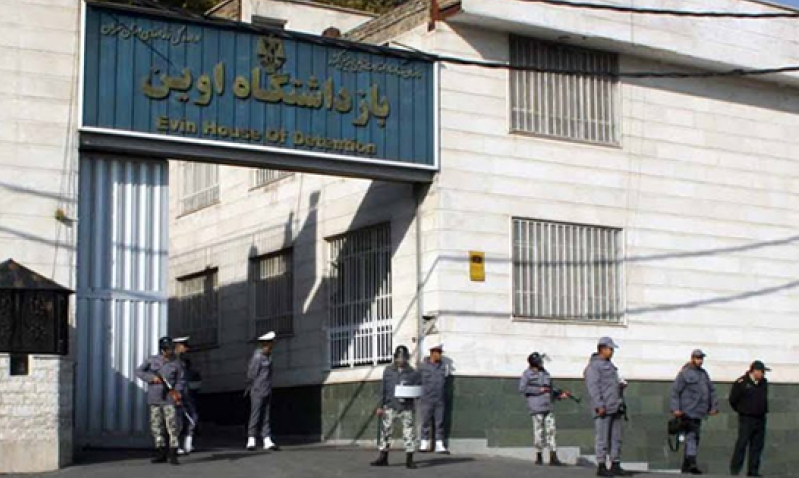
I know a man named Mohammed who works at the library at a college. Most people who pass by his desk probably don't know that he has quite a story to tell about Iran, and how they treat their journalists. This is important because the United States has made a deal with Iran about their nuclear capabilities, and recent developments with journalists in Iran could show that the country is planning on honoring its deal with the U.S.
Much of what the United States knows about Iran comes from recent history with the Shah, the Ayatollahs, the hostage crisis, the Iran/Iraq war, and now a deal with Obama over their personal nuclear plan. The country also has a history of arresting journalists that needs to change before any more deals can be made.
In 2004, Mohammad was arrested for protesting the leader's commandment to parliament, which is elected directly by the vote of people, to stop a law which improved the legal rights of journalists in Iran. There wasn't really any particular article or quote that the government held him for. Iran likes to arrest journalists during times of crises before they report on what they don't want the public to hear.
When Mohammad was arrested, he didn't give the authorities his real name or address. He was stuck in a cell that was 2 x 2 meters, with three others. There was another room where 150 prisoners were crammed into a very small room, and fed a diet of boiled eggs and potatoes. Mohammad revealed to his imprisoners his real name on his fourth day of his stay, and he was freed a few days later. He was then asked to attend a court later, and this court recognized that he was innocent. He suspects the reason why he was given a special privilege because he had two brothers who died in the Iran/Iraq war, but he cannot verify that.
Mohammad has a friend and fellow journalist known as Ahmad Zeidabadi. Ahmad was arrested in 2009 after the Iranian presidential election, and this was the third time he had been arrested for simply being a journalist. This last time, Ahmad was sentenced to a prison known as Evin, and then placed in exile in a town called Gonabad. Ahmad's exile has recently been lifted.
The prison known as Evin is a place that has a terrible reputation of torture of its prisoners. It is a place full of political prisoners from before and after the Islamic Revolution, not to mention several Christians as well.
Mohammad has another friend who spent time in Evin named Emad Bahavar, who was in this prison for five years. He was actually sentenced to 10 years in prison the first time he was tried, but his lawyer objected the verdict and it was decreased to 7 years after the third objection. After the third objection, which took place in the fifth year of his sentence, it was decreased to 2 years. Emad was freed in December of 2014, and is currently and cautiously sending news about the internal meetings of his like-minded and old Iranian political activists on his Facebook account.
During the infamous election of 2009, the regime announced Mahmoud Ahmadinejad as the elected president. Much of the Iranian people believed that there was a manipulation of their votes, and millions of them hit the streets of Tehran for several days to protest, requesting their vote back. It was during this time when the government started firing at the silent protesters, and killed many. Many journalists and political activists were arrested, and Mohammad came to the conclusion that it was safer for him to leave the country. Ahmad Zeidabadi was arrested before Mohammad left, and Emad was arrested days after Mohammed's departure.
He left Iran and went to Malaysia before being arrested, where he stayed 5 or 6 months, until the situation calmed down. Some of the journalists were set free by this time. He was summoned by the ministry of intelligence months after he returned to Iran and was under 4 hours of interrogation.
Mohammad was going to get a PhD in Political Science, but this was frowned upon by the Iranian government. He then switched his major to Psychology, and he wants to study the psychological analysis of leaders and the psychological study of terrorists.
Here is a recent post on social media from Mohammad that reads: "Freedom of Ahmad and a number of political prisoners, mostly journalists, can be interpreted as a sign of national reconciliation after the nuclear deal with U.S. If so, it indicates that there is a relation between regime's fear of being involved in a war with U.S and making an effort to provide political stability and domestic unity by silencing opponents. Now the fear is gone, and next step would be developing freedoms. I hope so."
It is very clear that the United States can test out Iran's willingness to deal by checking to see how many journalists have been set free.







